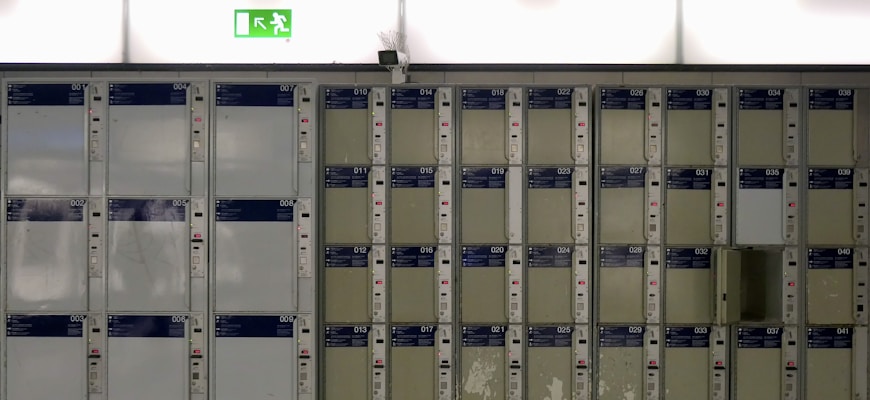Decentralized Storage: The Future of Data Management

- Understanding Decentralized Storage
- Benefits of Decentralized Data Management
- Challenges of Implementing Decentralized Storage
- Exploring Blockchain Technology in Data Storage
- The Role of Encryption in Decentralized Data Management
- Scalability and Security in Decentralized Storage Solutions
Understanding Decentralized Storage
Decentralized storage is a revolutionary approach to managing data that distributes information across a network of nodes rather than storing it in a central location. This distributed system offers increased security, reliability, and flexibility compared to traditional centralized storage methods.
One key advantage of decentralized storage is its resistance to single points of failure. By dispersing data across multiple nodes, the risk of data loss due to hardware failure or cyber attacks is significantly reduced. This redundancy ensures that information remains accessible even if some nodes go offline or are compromised.
Moreover, decentralized storage empowers users to have greater control over their data. With encryption and authentication mechanisms in place, individuals can securely store and share information without relying on third-party services. This autonomy not only enhances privacy but also mitigates the risk of data breaches and unauthorized access.
In addition to security and control benefits, decentralized storage offers scalability and cost-efficiency advantages. As storage needs grow, users can easily expand their capacity by adding more nodes to the network. This flexibility allows for seamless scalability without the need for costly upgrades or migrations. Furthermore, decentralized storage typically operates on a pay-as-you-go model, enabling users to only pay for the storage space they use.
Overall, decentralized storage represents the future of data management by providing a secure, reliable, and cost-effective solution for storing and accessing information. Its distributed nature, coupled with advanced encryption and authentication mechanisms, ensures that data remains protected and accessible to users at all times.
Benefits of Decentralized Data Management
Decentralized data management offers a wide range of benefits that make it an attractive option for businesses looking to improve their storage solutions. One of the key advantages of decentralized storage is increased security. By spreading data across multiple nodes rather than storing it in a central location, decentralized storage reduces the risk of a single point of failure. This means that even if one node is compromised, the rest of the data remains secure.
Another benefit of decentralized data management is improved reliability. With data stored across multiple nodes, there is no single point of failure that could lead to data loss. This redundancy ensures that data is always available when needed, even in the event of hardware failures or network outages. Additionally, decentralized storage can offer faster access times since data can be retrieved from the nearest node rather than from a central server.
Decentralized data management also provides greater control over data. With decentralized storage, users can encrypt their data before it is stored, ensuring that only authorized parties can access it. This can help businesses comply with data privacy regulations and protect sensitive information from unauthorized access. Furthermore, decentralized storage allows users to retain ownership of their data, rather than relying on third-party providers to safeguard it.
In conclusion, decentralized data management offers a secure, reliable, and flexible solution for businesses looking to improve their storage capabilities. By spreading data across multiple nodes, decentralized storage reduces the risk of data loss and unauthorized access while providing greater control and ownership over data. As businesses continue to generate increasing amounts of data, decentralized storage is poised to become the future of data management.
Challenges of Implementing Decentralized Storage
Implementing decentralized storage comes with its own set of challenges that organizations need to be prepared for. One of the main hurdles is the complexity of setting up and managing a decentralized storage network. This requires a certain level of technical expertise and resources that not all organizations may possess. Additionally, ensuring the security and reliability of a decentralized storage system can be more challenging compared to traditional centralized storage solutions.
Another challenge is the issue of data privacy and compliance. With decentralized storage, data is distributed across multiple nodes, making it more difficult to control who has access to the data and ensuring compliance with regulations such as GDPR. Organizations need to carefully consider how they will manage data privacy and security in a decentralized storage environment.
Scalability is also a concern when it comes to decentralized storage. As data grows, organizations need to ensure that their decentralized storage network can scale accordingly to accommodate the increasing volume of data. This requires planning and potentially investing in additional resources to support the scalability of the decentralized storage system.
Exploring Blockchain Technology in Data Storage
Blockchain technology has been increasingly explored as a solution for data storage due to its decentralized nature. By utilizing blockchain for data management, users can enjoy enhanced security, transparency, and immutability in their storage systems.
Decentralized storage systems powered by blockchain offer a unique way to store data across a network of nodes, eliminating the need for a central authority. This ensures that data remains secure and private, as each block is cryptographically linked to the previous one, making it tamper-proof.
One of the key benefits of using blockchain for data storage is the increased redundancy and fault tolerance it provides. With data being stored across multiple nodes in the network, the risk of data loss or corruption is significantly reduced, ensuring the integrity of the stored information.
The Role of Encryption in Decentralized Data Management
Encryption plays a crucial role in decentralized data management by ensuring that data stored across a network of nodes remains secure and private. By encrypting data before it is distributed, decentralized storage systems can protect sensitive information from unauthorized access or tampering.
One of the key benefits of encryption in decentralized data management is that it allows users to retain control over their own data. Because each user holds the encryption keys to their data, they can decide who has access to it and under what circumstances.
Moreover, encryption helps to mitigate the risk of data breaches and cyber attacks. Even if a malicious actor gains access to a node in the decentralized network, the encrypted data remains unreadable without the corresponding decryption key.
Overall, encryption is an essential component of decentralized data management, providing the security and privacy needed to build trust in these innovative storage systems.
Scalability and Security in Decentralized Storage Solutions
Scalability and security are two crucial aspects of decentralized storage solutions that are driving the future of data management. When it comes to scalability, decentralized storage systems offer the flexibility to easily expand storage capacity as needed. This means that organizations can seamlessly scale their storage resources without the limitations imposed by traditional centralized storage systems.
On the other hand, security is a top priority for any organization when it comes to managing data. Decentralized storage solutions employ advanced encryption techniques to ensure that data is securely stored and accessed. By distributing data across a network of nodes, decentralized storage systems also reduce the risk of a single point of failure, enhancing data security.
Furthermore, decentralized storage solutions offer increased data privacy and protection against unauthorized access. With end-to-end encryption and user-controlled access, organizations can have peace of mind knowing that their sensitive data is safe from prying eyes.




